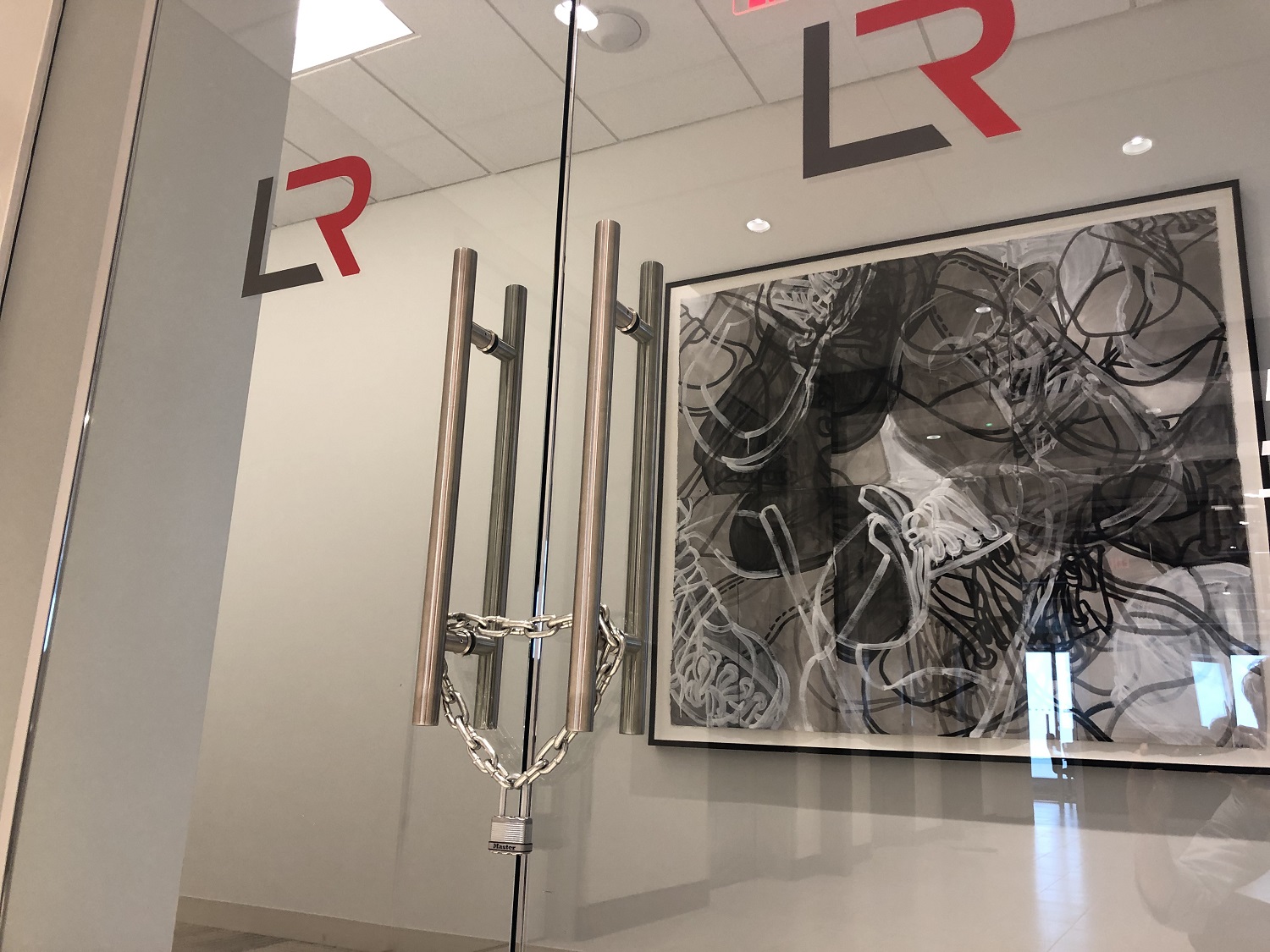Gary LeClair is pushing back at allegations that he conspired to benefit from and is to blame for the collapse of his namesake law firm.
The co-founder and longtime leader of the now-defunct Richmond legal giant LeClairRyan last month called for an across-the-board dismissal of more than a dozen counts filed against him by the trustee overseeing the law firm’s bankruptcy liquidation.
The trustee, Lynn Tavenner, is looking to cast blame for the firm’s demise and recoup damages to put back into the creditor’s pool.
In an amended complaint filed in August, she painted LeClair and legal services company UnitedLex, respectively, as a “deceitful law firm ‘entrepreneur’ conspiring with an opportunistic ‘global enterprise legal services provider’… to manipulate a law firm for their own gain and benefit.”
But LeClair, in his Sept. 27 motion for dismissal, said the allegations “defy human nature and logic, and are simply untrue.”
“Over 94 pages and 558 paragraphs of allegations, the amended complaint contains dozens of false and misleading statements attempting to manufacture a conspiracy involving (LeClair), the purpose of which was to destroy LeClairRyan PLLC – the firm (LeClair) founded, put his name to and invested in personally, professionally, and financially for more than 30 years,” LeClair’s filing states.
His call for dismissal includes on counts of conspiracy, breach of fiduciary duty, unjust enrichment and a return of certain funds the firm paid him leading up to its fall into bankruptcy in the summer of 2019.
LeClair’s arguments for dismissal hinge mainly on his claim that Tavenner’s allegations lack legal merit.
He also argues that some claims are barred by a release he received from the firm prior to his departure, as well as the statute of limitations.
While Tavenner’s case tells a tale of LeClair pulling strings with UnitedLex behind the scenes, LeClair claims he didn’t have any such power in the firm’s final years — and, therefore, had no fiduciary duty to the firm as it floundered.
LeClair founded LeClairRyan with Dennis Ryan in Richmond in 1988. LeClair served as the firm’s CEO from inception until June 2011, proclaiming that his tenure was marked by “disciplined financial management…”
After stepping down as CEO in 2011, he relinquished further responsibility by leaving his seat as chairman of the board in 2015. He also claims that he had no signatory or personnel authority as chair and was not an officer or board member after leaving the board entirely in January 2016.
“While (LeClair) remained a shareholder, he had no management authority or leadership role whatsoever.”
Tavenner claims LeClairRyan was insolvent beginning in 2014 and was profitable only during one year since 2011. The trustee’s suit references emails purporting to show LeClair’s involvement in the firm’s business matters up until some of its final days, despite alleged efforts to conceal such activity. He ultimately left the firm just prior to its collapse — joining downtown rival Williams Mullen.
LeClair remains a partner at Williams Mullen and is represented in the bankruptcy matters by attorneys Scott Sexton and Andrew Bowman of Gentry Locke, along with Bill Broscious of Kepley Broscious & Biggs. LeClair and his legal team declined to comment beyond what’s stated in the court filings.
Tavenner seeks to recoup more than $3 million in so-called fraudulent transfers LeClair received from the firm in the five years leading up to its collapse.
LeClair maintains that much of that money was owed to him through various compensation plans. He also filed a claim as a creditor with the bankruptcy estate for $2.44 million.
The trustee’s claims may also look to trigger insurance payouts from policies LeClairRyan would have had in place to cover executives and directors.
Tavenner’s claims center on an ill-fated joint venture between LeClairRyan and UnitedLex called ULX partners, which was consummated in the law firm’s final months. That partnership, designed to cut costs by outsourcing back-office jobs from LeClairRyan to ULX, is seen as having had a hand in the law firm’s undoing.
Tavenner first sued UnitedLex in 2020, seeking $128 million in damages by alleging that the ULX plan was a conspiracy to siphon millions out of the 30-year-old law firm as it was teetering toward collapse.
She added LeClair to the case in August, arguing that he conspired with both UnitedLex and that company’s CEO, Daniel Reed, to keep LeClairRyan alive longer than necessary for their own benefit.
Tavenner also continues her legal fight with dozens of former LeClairRyan shareholding partners.
Gary LeClair is pushing back at allegations that he conspired to benefit from and is to blame for the collapse of his namesake law firm.
The co-founder and longtime leader of the now-defunct Richmond legal giant LeClairRyan last month called for an across-the-board dismissal of more than a dozen counts filed against him by the trustee overseeing the law firm’s bankruptcy liquidation.
The trustee, Lynn Tavenner, is looking to cast blame for the firm’s demise and recoup damages to put back into the creditor’s pool.
In an amended complaint filed in August, she painted LeClair and legal services company UnitedLex, respectively, as a “deceitful law firm ‘entrepreneur’ conspiring with an opportunistic ‘global enterprise legal services provider’… to manipulate a law firm for their own gain and benefit.”
But LeClair, in his Sept. 27 motion for dismissal, said the allegations “defy human nature and logic, and are simply untrue.”
“Over 94 pages and 558 paragraphs of allegations, the amended complaint contains dozens of false and misleading statements attempting to manufacture a conspiracy involving (LeClair), the purpose of which was to destroy LeClairRyan PLLC – the firm (LeClair) founded, put his name to and invested in personally, professionally, and financially for more than 30 years,” LeClair’s filing states.
His call for dismissal includes on counts of conspiracy, breach of fiduciary duty, unjust enrichment and a return of certain funds the firm paid him leading up to its fall into bankruptcy in the summer of 2019.
LeClair’s arguments for dismissal hinge mainly on his claim that Tavenner’s allegations lack legal merit.
He also argues that some claims are barred by a release he received from the firm prior to his departure, as well as the statute of limitations.
While Tavenner’s case tells a tale of LeClair pulling strings with UnitedLex behind the scenes, LeClair claims he didn’t have any such power in the firm’s final years — and, therefore, had no fiduciary duty to the firm as it floundered.
LeClair founded LeClairRyan with Dennis Ryan in Richmond in 1988. LeClair served as the firm’s CEO from inception until June 2011, proclaiming that his tenure was marked by “disciplined financial management…”
After stepping down as CEO in 2011, he relinquished further responsibility by leaving his seat as chairman of the board in 2015. He also claims that he had no signatory or personnel authority as chair and was not an officer or board member after leaving the board entirely in January 2016.
“While (LeClair) remained a shareholder, he had no management authority or leadership role whatsoever.”
Tavenner claims LeClairRyan was insolvent beginning in 2014 and was profitable only during one year since 2011. The trustee’s suit references emails purporting to show LeClair’s involvement in the firm’s business matters up until some of its final days, despite alleged efforts to conceal such activity. He ultimately left the firm just prior to its collapse — joining downtown rival Williams Mullen.
LeClair remains a partner at Williams Mullen and is represented in the bankruptcy matters by attorneys Scott Sexton and Andrew Bowman of Gentry Locke, along with Bill Broscious of Kepley Broscious & Biggs. LeClair and his legal team declined to comment beyond what’s stated in the court filings.
Tavenner seeks to recoup more than $3 million in so-called fraudulent transfers LeClair received from the firm in the five years leading up to its collapse.
LeClair maintains that much of that money was owed to him through various compensation plans. He also filed a claim as a creditor with the bankruptcy estate for $2.44 million.
The trustee’s claims may also look to trigger insurance payouts from policies LeClairRyan would have had in place to cover executives and directors.
Tavenner’s claims center on an ill-fated joint venture between LeClairRyan and UnitedLex called ULX partners, which was consummated in the law firm’s final months. That partnership, designed to cut costs by outsourcing back-office jobs from LeClairRyan to ULX, is seen as having had a hand in the law firm’s undoing.
Tavenner first sued UnitedLex in 2020, seeking $128 million in damages by alleging that the ULX plan was a conspiracy to siphon millions out of the 30-year-old law firm as it was teetering toward collapse.
She added LeClair to the case in August, arguing that he conspired with both UnitedLex and that company’s CEO, Daniel Reed, to keep LeClairRyan alive longer than necessary for their own benefit.
Tavenner also continues her legal fight with dozens of former LeClairRyan shareholding partners.

